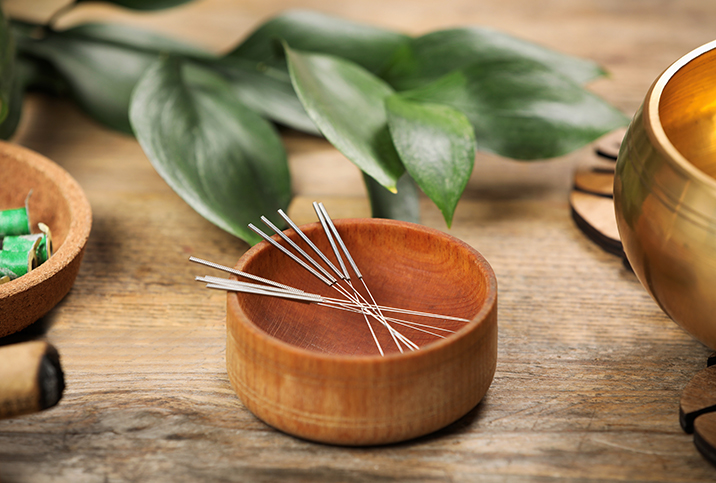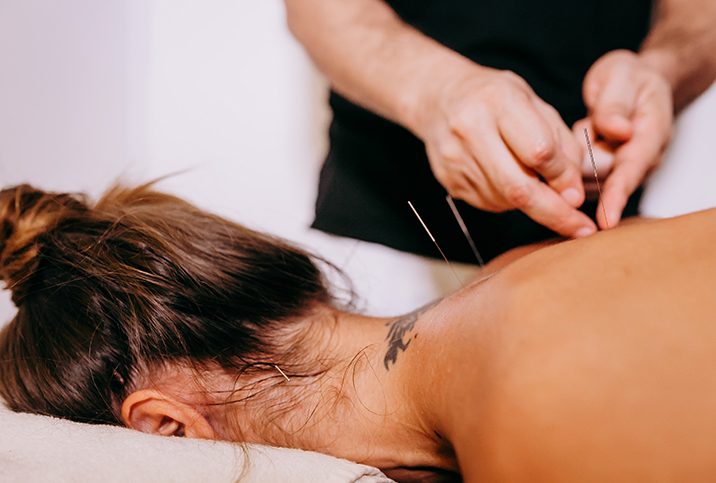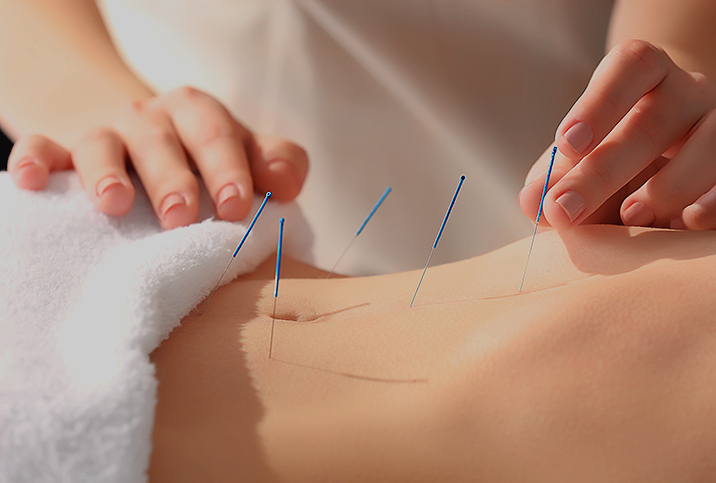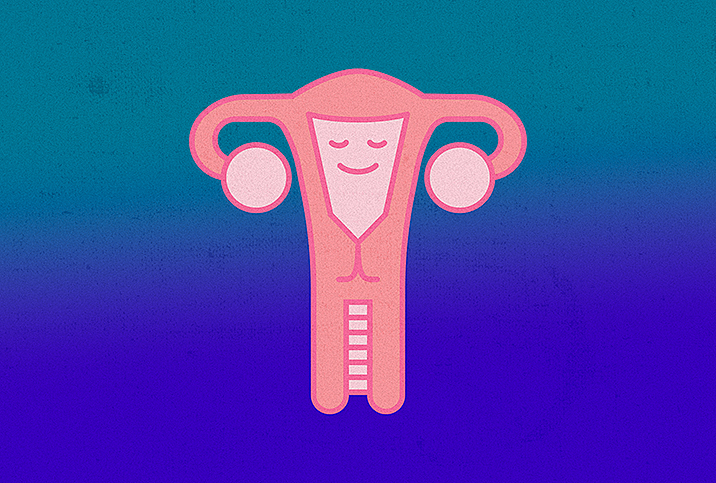Can Acupuncture Treat Endometriosis Effectively?

Endometriosis is a painful condition in which tissue similar to the lining of the uterus (endometrium) grows outside the uterus. An estimated 4.4 percent of people with uteruses around the world have this condition.
In endometriosis patients, the endometrium shed during menstruation remains stuck inside the body with no way out, which can cause irritation, scars, pelvic pain and even infertility. There are no known definitive causes or cures for this condition, although there are many ways to manage it. Physicians commonly prescribe NSAIDs and oral contraceptives to help people with endometriosis manage their symptoms.
However, for some endometriosis sufferers who find little relief from Western medicine, a traditional Chinese medicine (TCM) option such as acupuncture might be attractive. But can acupuncture treat endometriosis effectively? We spoke with experts to find out.
How acupuncture benefits endometriosis according to TCM
"When people have pain, Chinese medicine considers the issue lies in a lack of circulation of energy. The blockage can stem from injuries, lack of physical activity or chemical imbalance," said Irwin Ma, a doctor of acupuncture and Chinese medicine and the former president of the Chinese Medicine and Acupuncture Association of Quebec in Canada. "Energy flows in the body in different meridians. Acupuncture is a practice which manipulates meridians to treat health problems."
The roots of endometriosis lie in endocrine problems disrupting energy circulation and metabolic rhythms, according to Ma. He treats his patients by putting acupuncture needles in specific meridian points to unblock energy flows.
"Once I have reestablished energy flows, then it can carry oxygen and nutrients throughout the body to speed up the healing process," Ma said.
Acupuncture allows the body to deal with the inflammatory pain of endometriosis, stated Tom Ingegno, a doctor of acupuncture and Chinese medicine and licensed Baltimore acupuncturist.
Acupuncturists theorize that the practice can help increase circulation both into and out of an area.
"So when we open up the blood vessels, we get inflammatory agents, such as cytokines, out of the tissue," Ingegno explained. "Then the tissue is invigorated with fresh blood because these blood vessels are open."
In addition to these benefits, Ingegno said the process of acupuncture releases feel-good neurotransmitters, such as endorphins, which act as natural pain relievers.
How effective is acupuncture for endometriosis?
People looking into acupuncture to treat their endometriosis should know it is not an instant solution.
"Because we are looking to improve the fundamental circulatory and endocrine systems, it takes longer," Ma said. "This length is reflected not only in the duration of each session but in the time lapse between the first and the last session as well. Treatment typically lasts a few months."
Treatment results depend on the severity of the pain, the age of the person and their hormone levels, Ingegno said. According to him, since endometriosis symptoms tend to flare up during periods, people should notice results after having sessions once per menstrual cycle for at least three cycles.
"Patients may see some results after their first treatment, but they're going to be on a treatment plan to get their symptoms under control," he said. "I tell people to give it five treatments. But within the first few, they should feel an improvement."
Ingegno acknowledged that some people have symptoms so severe they need further treatment and, in some instances, a full hysterectomy.
What research says about acupuncture for endometriosis
Some evidence indicates that acupuncture may be an effective method of treating endometriosis symptoms, but more research is needed. Most studies done on the subject are small and, therefore, inconclusive. A 2017 meta-analysis suggested that the practice may reduce pain for people suffering from endometriosis.
Acupuncture may be effective in treating inflammation, depression and migraines—all symptoms experienced by many endometriosis patients—according to Elaine M. Malin, a doctor of acupuncture and Chinese medicine at Illume Fertility in Norwalk, Connecticut.
A 2019 meta-analysis of 29 studies, however, indicated that a majority of studies on the effectiveness of acupuncture show a high risk of bias and, therefore, conclusions about the benefits of acupuncture for depression need to be interpreted cautiously.
For maximum effect, both Ma and Ingegno highly recommend integrative treatment approaches combining elements of Western and Eastern medicine.
"I am very much pro-integrative treatment approaches," Ma said. "I often use a treatment plan comprising of Western medicine, acupuncture, Chinese herbal medicine and functional nutritional supplements."
Ingegno also supports his patients in pursuing a variety of treatment options. Alongside acupuncture and Chinese herbs, he recommends painkillers. In more serious cases, he might suggest surgery, too.
The bottom line
If you are looking for an approach to help you improve your quality of life with endometriosis, acupuncture might help. It is noninvasive, has few side effects and may improve your symptoms. A combination approach of acupuncture with Western medicine may tackle the problem holistically and lessen painful symptoms.
Before trying any new treatment plan, talk to your doctor about what's right for your individual situation.


















